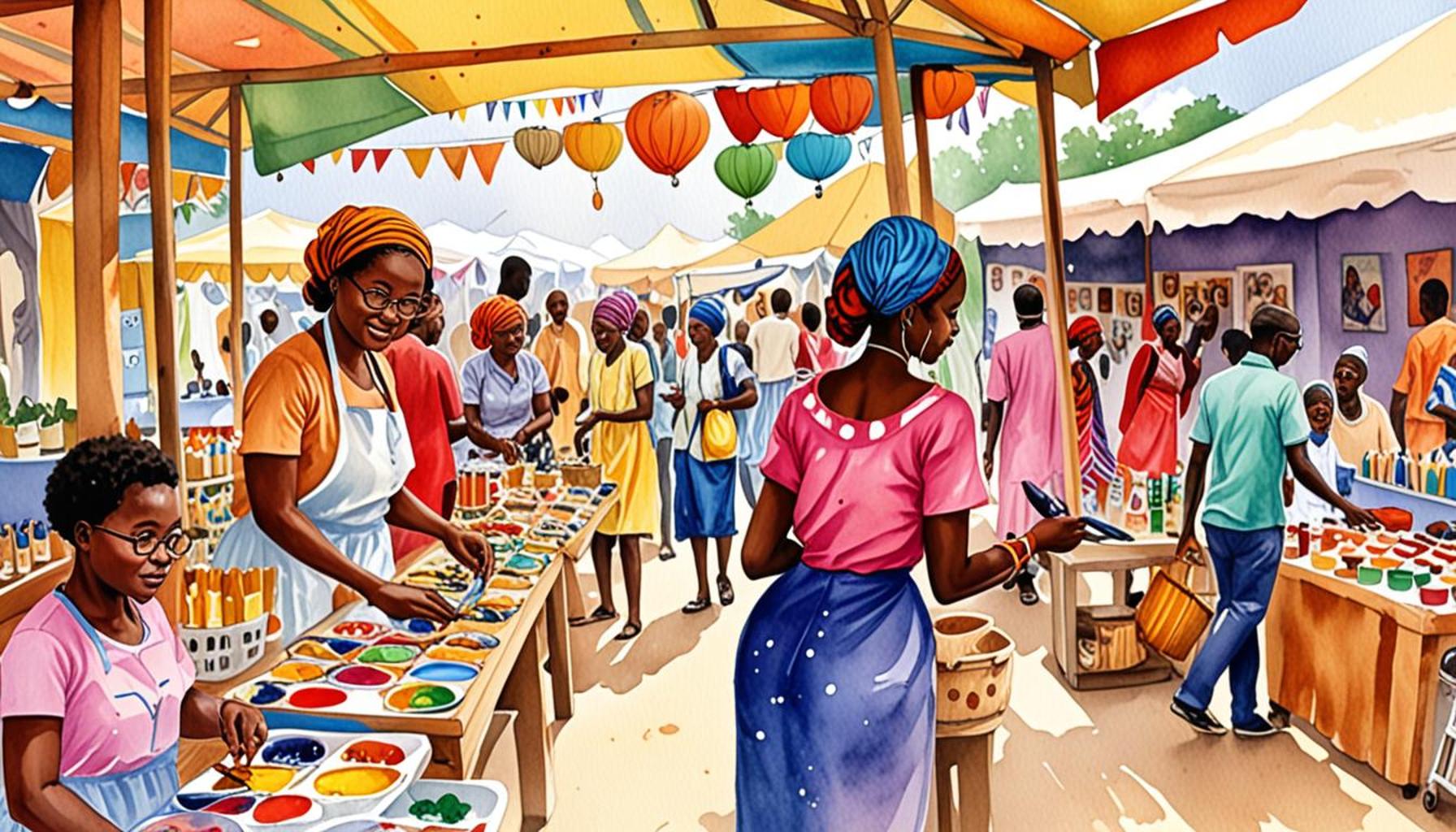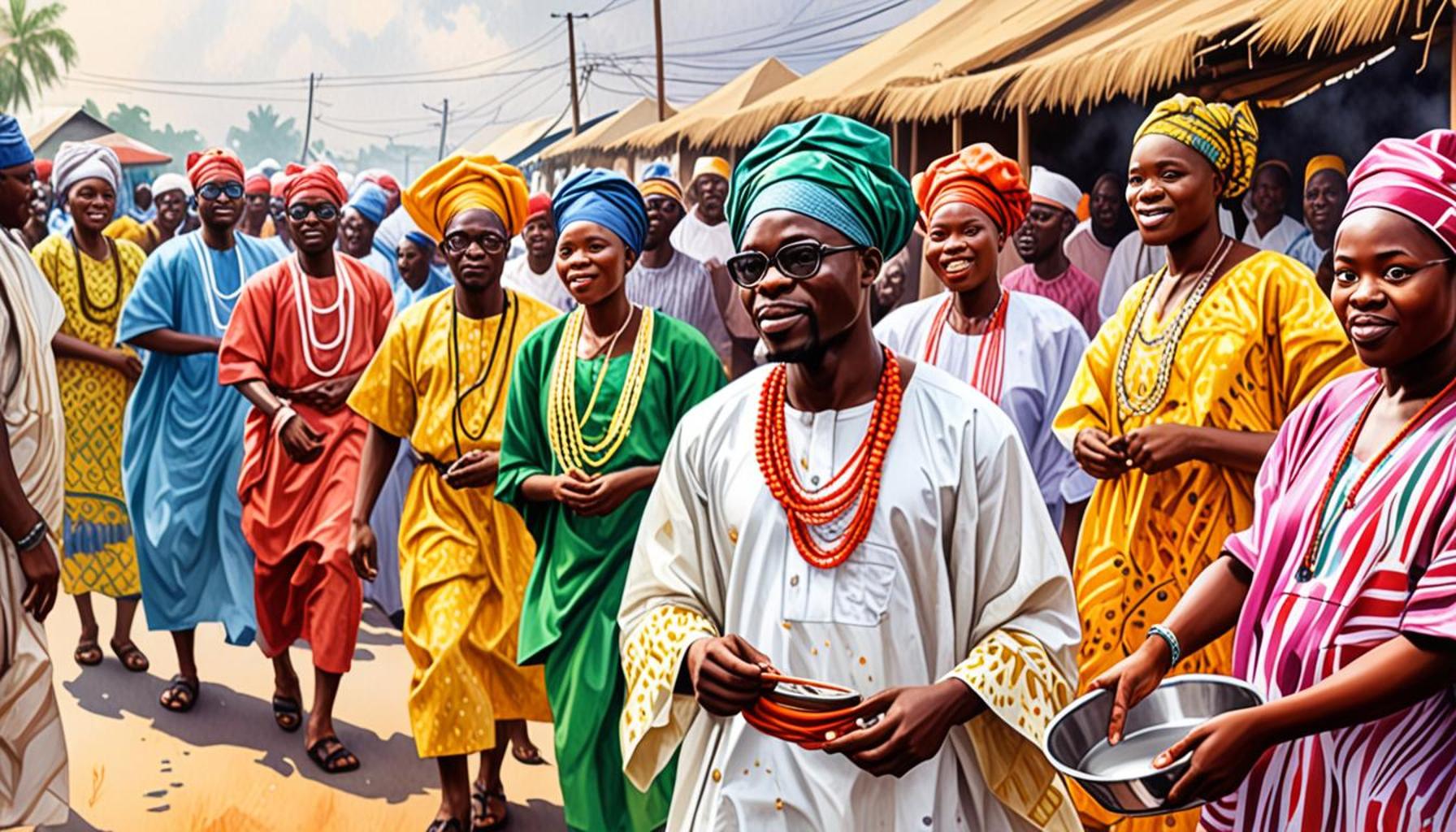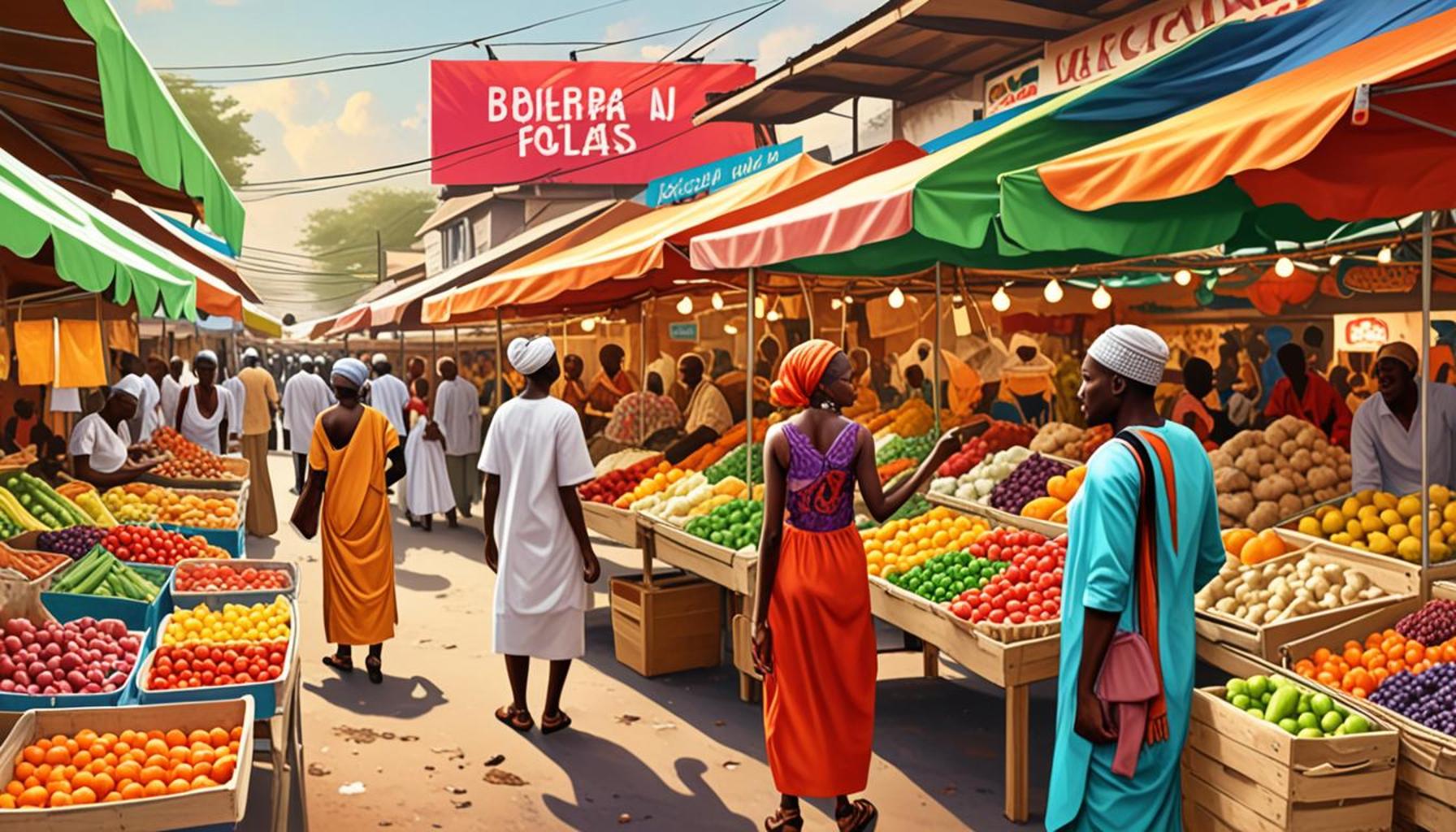Discover Local Culture Community Tourism Routes in Nigeria

Introduction
As travelers increasingly seek authentic experiences, community tourism has emerged as a compelling way to connect with local cultures. In Nigeria, a nation rich in diversity and traditions, exploring community-based tourism routes provides an enriching opportunity to engage with the vibrant mosaic of cultures that define the country. These itineraries not only offer a unique perspective on Nigeria’s heritage but also support local economies and foster cultural preservation.
Why is this trend relevant for modern travelers? Consider the following:
- Immersive Experiences: Visitors gain firsthand insight into the daily lives and customs of local communities.
- Support for Local Economies: Choosing community tourism contributes to sustainable development and empowers local artisans and guides.
- Preserving Traditions: Engaging with indigenous cultures promotes the continuation of age-old practices and stories.
In this article, we will highlight the Top 5 community tourism routes in Nigeria, each offering a unique lens through which to explore the country’s rich cultural heritage. Prepare to uncover hidden gems and experiences that can transform your travel into a meaningful journey.
Top 5: Exploring Local Culture – Community Tourism Itineraries in Nigeria
Nigeria, a land of extraordinary diversity, is often described as the “Giant of Africa” due to its vast geographical and cultural richness. With more than 250 distinct ethnic groups, Nigeria offers a tapestry of cultures, languages, and traditions waiting to be explored through community tourism. This form of tourism allows travelers to actively engage with local communities, witnessing their ways of life while contributing to their socioeconomic development. This article delves into the top five community tourism itineraries that provide an immersive experience into Nigeria’s local culture.
5. The Enchanting Village of Kofar Mata
Nestled in the heart of Kano State, Kofar Mata is legendary for its ancient dye pits. These pits are a testament to Nigeria’s rich textile heritage and have been a focal point of trade and craftsmanship since the 15th century. The community tourism itinerary in Kofar Mata guides visitors through the intricate processes of traditional fabric dyeing using natural, locally sourced dyes derived from plants like indigo.

In addition to exploring the dye pits, tourists can engage directly with artisans, partaking in hands-on workshops where they create their own designs. This interaction not only supports local craft but also offers a unique souvenir experience. Delving deeper into local life, visitors can savor traditional cuisine. Dishes like tuwo shinkafa (a rice dish) and flavorful kebabs are staples that reflect the rich culinary tapestry of Northern Nigeria.
Kofar Mata’s local markets are bustling with activity, offering an array of crafts, textiles, and jewelry, providing an opportunity for travelers to support the local economy directly. The experience in Kofar Mata is one of engaging with a living, breathing heritage that is as vibrant as the dyes themselves.
4. The Idanre Hills Adventure
The Idanre Hills in Ondo State are not just a natural wonder but a repository of history and culture. Rising steeply from the plains, these hills form a serene backdrop to the ancient town of Idanre. The journey into this region is as much about exploring the past as it is about discovering natural beauty.
This itinerary caters to the adventurous spirit with its network of hiking trails that offer varying levels of difficulty, ensuring that both novices and seasoned hikers can find their path. As visitors trek through the hills, they encounter cultural sites such as ancient courts and shrines, each telling stories of the region’s ancestors. The hills provide panoramic vistas of the surrounding landscape, offering breathtaking views that make the physical exertion worthwhile.
Interactions with local guides bring the region’s history to life, sharing tales of former settlements and the significance of the hills in local tradition. This blend of adventure and cultural immersion makes Idanre a must-visit for those seeking both thrills and insight.
3. Lagos Cultural Experience
Lagos, Nigeria’s pulsating metropolis, epitomizes the fusion of tradition and modernity. This vibrant city is a microcosm of modern African culture. Community tourism in Lagos introduces visitors to a city humming with creativity and diversity. From the bustling street art scenes of areas like Yaba to the elegant galleries of Victoria Island, Lagos offers a platform showcasing local talent.
Music, too, is at the heart of Lagos, with numerous live concerts and open-mic nights providing a soundtrack to the city. In parallel, community-led food tours reveal Lagos’ culinary depth. Iconic dishes such as jollof rice, spicy suya skewer, and sweet puff-puff are staples that showcase the city’s gastronomic appeal.
Markets such as the Lekki Market are buzzing centers where artisans sell handcrafted goods. These markets are cultural hotspots where engaging with local craftsmen uncovers the skill and effort poured into creating unique souvenirs. Lagos offers a dynamic cultural experience, making it a mandatory stop on any community-themed tour of Nigeria.
2. The Rich Heritage of Calabar
Calabar, in Cross River State, is often revered as Nigeria’s “Cultural Capital,” and for good reason. This city boasts a profound heritage rooted in the customs of the Efik people. A highlight of Calabar’s cultural calendar is the vibrant Calabar Carnival, known as Africa’s biggest street party. This massive celebration is a showcase of music, dance, and traditional costume, encapsulating the exuberant spirit of Nigeria’s festival culture.
The city also offers historical insights through tours of the old slave trade routes and visits to the Calabar Museum, which chronicles the poignant history of this era. Delving into the local cuisine, travelers can participate in cooking sessions, exploring dishes like the robustly flavored edikang ikong soup, rich in vegetables and proteins.
Calabar’s legendary hospitality and its mixture of festival fervor, historical reflection, and culinary discovery make it a top destination for those seeking a culturally enriching travel experience.
1. The Spirit of the Igbo Community at The Ogbodo Community
Topping our list is an immersive journey into the Ogbodo Community in Enugu State. Here, travelers embark on a cultural expedition into the heart of the Igbo people. Known for their industrious nature and vibrant traditions, the Igbo community offers a window into Nigeria’s soul.
Visitors can experience traditional Igbo hospitality, which might include participating in local festivals, witnessing masquerade dances, or engaging in storytelling sessions led by village elders. These narratives preserve the community’s oral history, offering insights into ancestral wisdom and cultural norms.
Art and craft workshops allow visitors to learn about the indigenous methods of pottery, weaving, and carving. These activities provide not just valuable skills but a deeper appreciation for the community’s artistic traditions. Furthermore, the local gastronomy is explored through interactive cooking lessons, where travelers can try their hand at making delicacies like fufu and ofe nsala soup.
The Ogbodo Community itinerary is the pinnacle of community tourism in Nigeria, offering an unforgettable immersion into the lifestyle, art, and traditions of the Igbo people, fostering a genuine cultural exchange and understanding.
| Category | Advantages |
|---|---|
| Empowerment of Local Communities | Tourism initiatives foster strong connections, enabling communities to participate actively in cultural preservation and economic development. |
| Cultural Exchange | Visitors gain invaluable insights into Nigerian traditions, customs, and daily life, enriching the travel experience while promoting cross-cultural understanding. |
| Promotion of Sustainable Practices | Community-centered tourism encourages environmentally friendly practices, contributing to the sustainable management of resources and cultural heritage. |
| Job Creation | Tourism generates employment opportunities for locals, ranging from tour guides to artisans, thus enhancing livelihoods and community resilience. |
Exploring cultural tourism routes in Nigeria presents an exciting opportunity for travelers seeking to engage with the rich tapestry of local life. With empowerment at the core, community-driven tourism not only uplifts individual lives but also strengthens familial and social ties within villages across the nation. Every interaction during a cultural tour becomes a thread woven into the broader narrative of Nigeria’s diverse heritage.Moreover, the heart of cultural exchange lies in experiential learning. Tourists who participate in these adventures are often left with profound connections to the people they encounter, igniting curiosity about their traditions, food, and arts. Such opportunities facilitate a two-way learning street, ensuring that visitors leave with a deeper appreciation for Nigerian culture, while locals feel recognized and valued.As travelers become increasingly conscientious about their environmental impact, community-based tourism offers a pathway toward sustainability. By advocating for responsible tourism practices, these initiatives help preserve the delicate ecosystems and rich cultural landscapes that define Nigeria. This approach does not merely focus on transient visits but fosters a commitment to nurturing the local environment.Furthermore, the economic benefit of community-focused tourism cannot be understated. As local guides share their stories, and artisans showcase their crafts, they contribute to an economy that directly benefits their communities. This establishment of local enterprises leads to significant job creation, enhancing the economic stability and resilience of regions previously reliant on more traditional, less sustainable forms of income.Through these lenses, the narrative of community tourism in Nigeria unfolds, promising both enriching experiences for travelers and meaningful benefits for local inhabitants. As interest in such routes grows, it invites a deeper exploration of how these connections can be nurtured and expanded across the vibrant landscapes of Nigeria.
Frequently Asked Questions About Exploring Local Culture: Community-Based Tourism in Nigeria
What is community-based tourism, and why is it important in Nigeria?
Community-based tourism involves engaging with local communities offering visitors an opportunity to experience their daily lives, traditions, and natural surroundings. In Nigeria, this form of tourism is crucial as it promotes sustainable development by ensuring that local communities benefit economically. Furthermore, it fosters cultural exchange and understanding, providing tourists with a more authentic experience than conventional tourism models.
Which are some popular destinations for community-based tourism in Nigeria?
Nigeria abounds with rich culture and tradition that can be explored through community-based tourism. Yankari National Park in Bauchi State is one popular destination, where tourists can interact with local guides and learn about wildlife conservation. Another notable spot is the Osun-Osogbo Sacred Grove, recognized as a UNESCO World Heritage Site, offering an immersive experience in Yoruba spirituality and art. Similarly, exploring the vibrant markets and crafts in Kano provides insight into the Hausa culture.
How can tourists ensure a respectful and enriching experience when participating in community-based tourism in Nigeria?
To ensure a respectful and enriching experience, tourists should approach visits with an open mind and a willingness to learn. It’s important to follow local customs, dress modestly, and ask for permission before taking photographs of individuals or sacred sites. Supporting locally-run businesses and participating in community-led activities can greatly enhance the experience and positively impact the community.
Can community-based tourism contribute to preserving Nigerian culture and traditions?
Yes, community-based tourism can play a significant role in preserving Nigerian culture and traditions. By providing a platform for locals to share their heritage and crafts, it helps sustain cultural practices that might otherwise fade. This form of tourism also raises awareness about the importance of cultural and environmental preservation, encouraging communities to maintain their traditions for future generations while benefiting economically.
Conclusion: Embracing Nigeria’s Rich Cultural Heritage through Community-Based Tourism
Exploring the local culture of Nigeria through community-based tourism offers a unique and enriching experience for travelers keen on delving deeper into the heart of African traditions. Throughout the article, we have traversed various tourist itineraries, unveiling the rich tapestry of Nigeria’s cultural heritage that is waiting to be discovered. From the vibrant festivals to the traditional crafts, these journeys provide a profound insight into the everyday lives of local communities.
By focusing on community-based tourism, travelers are not only gifted with authentic experiences but also contribute economically and socially to the communities they visit. The itineraries highlighted in the article exemplify how such tourism promotes sustainable travel while fostering a deeper respect and understanding between cultures. Key takeaways include the opportunity to engage with diverse communities, participate in traditional activities, and witness the striking landscapes that frame these cultural encounters.
The article draws attention to the importance of crafting responsible and respectful itineraries that honor and preserve the traditional practices and environments of Nigerian communities. By fostering connections with locals, tourists can gain unparalleled insights into Nigeria’s heritage, enriching their travels while making a positive impact. Ultimately, community-based tourism in Nigeria presents a compelling invitation to step off the beaten path and immerse oneself in the unparalleled beauty and diversity of its local culture.
As we conclude, it’s essential to reflect on how community-based tourism can pave the way for more profound connections and mutual benefits. Encouraging travelers to explore Nigeria through this lens not only broadens their horizons but also helps preserve the cultural legacy of one of Africa’s most diverse nations. With countless untold stories and unexplored paths, Nigeria beckons the curious, promising new adventures and lasting memories.


